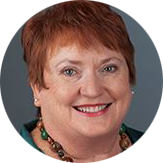 Adaptive learning is an emerging technology that has been shown to increase student engagement and student learning. Adaptive learning systems are automated systems that use machine learning to provide questions to assess student knowledge, give immediate feedback on responses, and provide scaffolding to support learning.
Adaptive learning is an emerging technology that has been shown to increase student engagement and student learning. Adaptive learning systems are automated systems that use machine learning to provide questions to assess student knowledge, give immediate feedback on responses, and provide scaffolding to support learning.
The Online Learning Consortium (OLC) is reaching out to our global community of thought leaders, faculty, innovators, and practitioners to bring you insights from the field of online, blended, and digital learning. Dr. Deborah Taylor, OLC Institute SME and faculty for the Adaptive Learning Fundamentals and Courseware Exploration workshop, joins us to answer our questions about this new workshop.
OLC: There are many opportunities to teach online. Why did you choose OLC and which Institute courses do you teach for OLC?
I enjoy offering professional development opportunities that promote teaching with technology. Last year I was presenting at a conference and one of the attendees approached me after my talk and said, “I love learning about new teaching resources and methods, but often after I return home, I don’t know how to start doing them.”
I chose to teach at OLC because their workshops give participants the guidance and resources in much more depth than a short presentation at a conference can offer. I like the idea that the OLC Institute’s participants represent a broad base of interested learners from all over the country. I am the SME and the instructor for the Adaptive Learning Fundamentals and Courseware Exploration workshop being offered for the first time this fall.
OLC: What are the 3 most important things prospective participants should know about the Adaptive Learning Fundamentals and Courseware Exploration workshop?
This workshop will help you understand what adaptive learning is and what it offers your students. Additionally, it can serve as a field guide to help you navigate the multitude of adaptive courseware products and their options in order to select the best adaptive courseware for your classes. The workshop will also provide resources that can help your institution develop a process to implement adaptive courseware.
OLC: What would you suggest as “best practices” for adaptive learning courseware usage?
The assignments must count towards the students’ grade because the students who can benefit from the individualized learning pathway won’t do them if they are not part of the grade. The assignments should not be worth a lot of points, and they work best when they are short, frequent and based on completion.
OLC: Where do you see adaptive learning going in the next five years?
I see adaptive learning really taking off as the courseware becomes more widely utilized in higher education, particularly in general education courses. Adaptive learning courseware has already begun to be more mobile-friendly and I see this trend continuing as technology improves. In addition, I see the learning analytics derived from student performance playing a larger role in guiding teaching and learning.
OLC: OLC’s Institute offerings help professionals stay current in their respective fields, and oftentimes assist in the advancement of their profession. What do you believe are the top 3 ways in which professionals in our field can stay current and move ahead?
1. I like using Twitter to see what is currently trending in educational technology and online teaching. My account is only used for professional development and I have found some wonderful resources through my Twitter network.
2. Participate as a learner in online courses, workshops, and MOOCs. Keeping current in technology is a must and it’s much easier to master new techniques when you have a “guide on the side” as you do in these venues.
3. In order to move ahead, you have to challenge yourself and step out of your comfort zone. Through your connections from courses and conferences, try to find a project that you’d like to participate in and volunteer to help. This will extend your professional network and you’ll find more opportunities popping up along the way.
OLC: What projects/research are you currently engaged in?
I’m currently involved in a project that we call the X-Files. We are exploring the future of innovative learning environments in STEM Education for a NSF (National Science Foundation) grant. I’m writing the chapter on personalized and adaptive learning.
I’m also doing some work on retrieval practice theory and teaching a continuing education course on inserting retrieval practice methods into the classroom.
OLC: What was the last book, journal or article you read that relates to the field?
Powerful Teaching: Unleash the Science of Learning by Pooja K. Agarwal and Patrice M. Bain.
I’ve been reading a lot of journal articles regarding adaptive learning, but this stands out in that it is an entire issue that focuses on adaptive learning: Current Issues in Emerging eLearning, Volume 5, Issue 1: Special Issue on Leveraging Adaptive Courseware (2018).
OLC: How can people connect with you?
Twitter: @diagonaldee
Email: profdtaylor@hotmail.com
LinkedIn: www.linkedin.com/in/DeborahLTaylorPhD
 Dr. Deborah Taylor enjoys presenting at conferences and workshops where she shares her passion for online learning and teaching technologies. She taught her first online course in 1996 and since then has designed, developed, and delivered more than 17 undergraduate and graduate online courses that engage students and promote academic success.
Dr. Deborah Taylor enjoys presenting at conferences and workshops where she shares her passion for online learning and teaching technologies. She taught her first online course in 1996 and since then has designed, developed, and delivered more than 17 undergraduate and graduate online courses that engage students and promote academic success.
Deborah holds a Ph.D. in Educational Technology from the Educational Leadership and Policy Studies, an MA in Physiology and Cell Biology from the University of Kansas, and a BA from Mid-America Nazarene University in Chemistry/Biology. In 2014, she attended and graduated from the EDUCAUSE Learning Technology Leadership Program and earned a Blended Learning Designer Certificate from University of Central Florida.
Dr. Taylor has a great interest in STEM teaching and with a strong background in science teaching and research; she is now offering courses for teacher recertification through the School of Education’s Graduate Program at Baker University. She is also a Faculty Affiliate at the University of Kansas in Undergraduate Biology. One interesting thing about Deborah is that she earned her Blackbelt in Tae Kwon Do as an adult.

